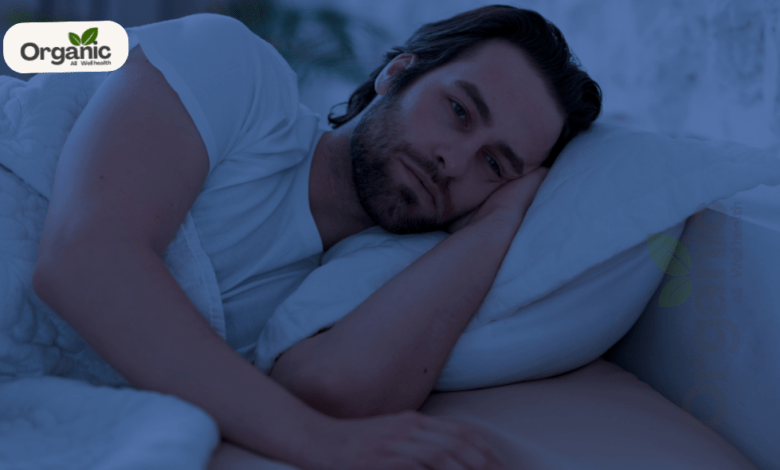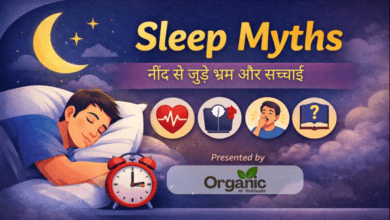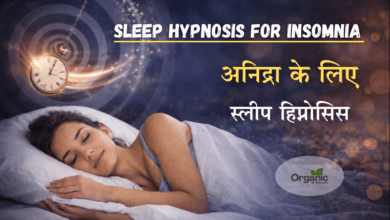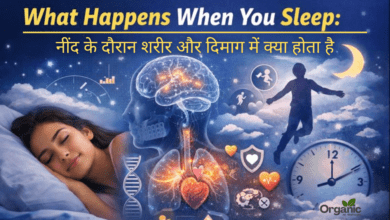Depression at Night:- Causes, Effects, and How to Cope

Depression is a mental health condition that affects millions globally, and for many, it becomes significantly worse after the sun goes down. Depression at night is more than just sadness—it can be a paralyzing experience that disrupts sleep, intensifies feelings of loneliness, and leads to long-term emotional distress. In this in-depth article by allwellhealthorganic, we will explore the causes of depression at night, its connection with sleep and the body’s circadian rhythm, and most importantly, practical strategies to manage and reduce its symptoms.
Understanding Depression at Night
What is Depression at Night?
Depression at night refers to a condition where depressive symptoms—such as hopelessness, anxiety, or sadness—intensify during nighttime hours. Individuals may find it more difficult to fall asleep, experience racing thoughts, or feel a sense of emotional heaviness that’s not present during the day.
This issue can affect anyone, regardless of age or background, and is often linked with insomnia, circadian rhythm disruption, and emotional isolation.
Also Read: Improve Sleep Quality Naturally | 10 Proven Tips for Restful Nights
Why Depression Worsens at Night
1. Lack of Distractions
During the day, most people are preoccupied with tasks such as work, school, errands, or social interactions. These activities act as distractions that can suppress negative thoughts. However, at night, when the world quiets down and external distractions are minimal, people are left alone with their thoughts. This mental stillness often brings suppressed emotions to the surface, fueling depression at night.
2. The Role of Darkness and Isolation
Darkness naturally induces quiet and solitude, which can deepen feelings of loneliness. For people dealing with mental health issues, nighttime solitude can lead to overthinking, emotional numbness, or a magnification of worries that seem less intense during the day.
3. Circadian Rhythm Disruptions
The circadian rhythm, your body’s internal clock, regulates sleep, hormone production, and mood. Scientific studies have shown that disruptions in circadian rhythm can increase vulnerability to depressive symptoms. Artificial lighting, especially blue light from screens, can throw off this rhythm and contribute to depression at night.
How Light Affects Depression at Night
1. Impact of Artificial Light
A 2013 animal study indicated that exposure to bright lights, such as those from television screens or smartphones, increases cortisol levels and affects the hippocampus, a brain region crucial for mood regulation. Prolonged exposure to blue and white light can delay melatonin release, making it harder to fall asleep and worsening depressive symptoms.
2. Overstimulation Before Sleep
Watching intense shows, scrolling through social media, or reading distressing news late at night can overstimulate the brain. This not only delays sleep onset but also contributes to emotional fatigue, exacerbating the cycle of depression at night.
Signs and Symptoms of Nighttime Depression
Recognizing the signs of nighttime depression is the first step toward managing it. Common symptoms include:
- Increased sadness or crying in the evening hours
- Intrusive negative thoughts that intensify at night
- Difficulty falling asleep or staying asleep
- Feeling emotionally drained or hopeless after sunset
- Lack of interest in activities or conversations
- Overthinking past events or future anxieties
If you or someone you know is experiencing these symptoms, it’s essential to seek help and consider appropriate treatment options.
Effective Strategies to Manage Depression at Night
The allwellhealthorganic team recommends a multi-pronged approach to managing depression at night. These evidence-based tips are aimed at improving mental clarity, encouraging restful sleep, and minimizing emotional distress during nighttime.
1. Follow a Consistent Sleep Schedule
Maintaining regular sleep and wake times, even on weekends, helps regulate your circadian rhythm. Go to bed and wake up at the same time every day to train your brain for better sleep quality and emotional stability.
2. Limit Exposure to Screens and Blue Light
Avoid smartphones, laptops, and television at least two hours before bedtime. Consider using blue light-blocking glasses or apps that filter out blue light in the evening.
3. Create a Relaxing Bedtime Routine
Establishing a calming bedtime ritual can signal to your body that it’s time to wind down. Ideas include:
- Taking a warm bath
- Practicing meditation or deep breathing
- Listening to calming music
- Reading a comforting book (non-digital)
4. Seek Therapy or Professional Support
Therapy is one of the most effective tools to treat depression at night. Cognitive Behavioral Therapy (CBT) is especially helpful in managing intrusive thoughts and developing healthy coping mechanisms.
5. Journal Before Bed
Writing down your thoughts and emotions before sleeping can help you release pent-up anxiety. Journaling helps people gain perspective and can be an emotional release.
Lifestyle Changes That Support Mental Health
Long-term management of depression at night involves daily choices that foster mental wellness. The allwellhealthorganic team suggests incorporating the following lifestyle habits:
1. Physical Activity
Engaging in regular exercise increases serotonin and endorphin levels, which are chemicals known to boost mood and regulate emotions. Aim for at least 30 minutes of moderate activity five days a week.
2. Nutritious Diet
Eating whole foods such as vegetables, fruits, whole grains, and lean proteins can positively impact brain function and mood. Avoid caffeine and sugary foods in the evening as they can disrupt sleep and increase anxiety.
3. Avoid Alcohol and Substance Abuse
Alcohol may initially make you feel relaxed, but it can worsen sleep and intensify depressive symptoms later in the night. Always be cautious with substances that can alter brain chemistry.
4. Foster Social Connections
Daytime interactions with friends, family, or support groups can significantly improve emotional resilience. Human connection is a powerful antidote to loneliness and emotional isolation that fuels depression at night.
Natural Remedies and Mindfulness Techniques
If you’re looking for natural ways to cope with depression at night, consider these:
1. Herbal Teas and Supplements
Some herbs such as chamomile, valerian root, and lavender are known to promote relaxation and sleep. Always consult a doctor before starting any new supplement.
2. Mindfulness and Meditation
Practicing mindfulness helps in bringing awareness to the present moment and reducing overthinking. Apps like Headspace, Calm, or guided YouTube meditations can be great tools to start.
3. Aromatherapy
Using essential oils like lavender or sandalwood in a diffuser can create a calming environment conducive to sleep and emotional peace.
When to Seek Help
If depression at night becomes chronic, interferes with your daily life, or leads to thoughts of self-harm, seeking professional help is critical. Treatment options include:
- Psychotherapy (CBT, DBT)
- Medication (antidepressants, sleep aids)
- Support groups
- Holistic treatments such as acupuncture
Always talk to a mental health professional for a personalized treatment plan. Don’t wait until symptoms become overwhelming—early intervention is key.
Final Thoughts
Depression at night is a challenging but manageable condition. By understanding its root causes—such as lack of distractions, poor sleep hygiene, and hormonal imbalances—you can take meaningful steps to regain control over your mental health.
If you’re experiencing symptoms of depression at night, remember that you’re not alone, and help is available. Reach out, take small steps, and prioritize your mental well-being.
Disclaimer: This advice is for general informational purposes only. It is not a substitute for professional medical advice. Always consult an expert or your own doctor for more information. WellHealthOrganic is not responsible for the accuracy of this information.



